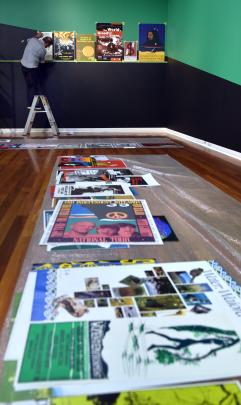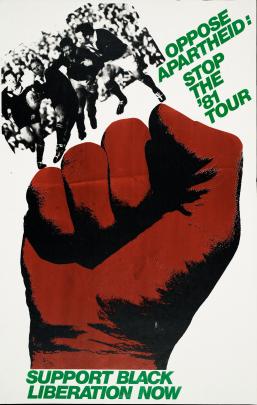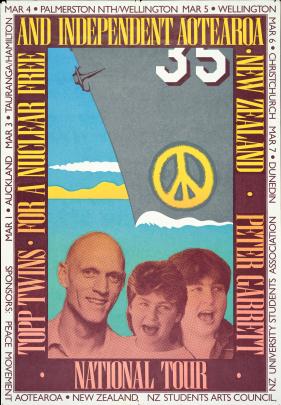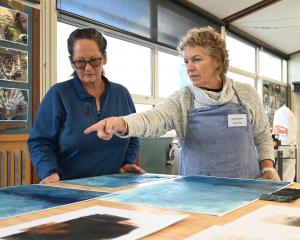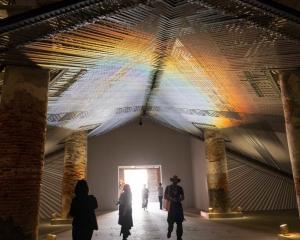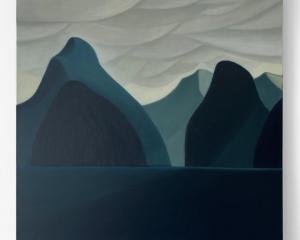Making a visual statement as strong as possible to help get the message across was the aim of the Wellington Media Collective. Former members tell Rebecca Fox the messages of the 1980s and ’90s are just as relevant today.
Twenty to 30 years ago Wellington Media Collective was the first stop for trade unions, arts and cultural organisations and protest movements wanting to get the word out.

A new selection of those works will be shown at Dunedin Public Art Gallery as "Not Neutral".
The works have been selected to complement the adjoining exhibition by Dunedin artist Matthew Galloway called "The Freedom of the Migrant".
For Chris McBride and Philip Kelly, former members of the collective which ran from 1978 to 1998, it is a fresh look at the collective’s archives.
"It shows the media, landscape, politics ... is not a neutral thing.
"The idea of New Zealand being this neutral space in the South Pacific is erroneous," Kelly says.
Many aspects of the issues their art, design and printing work that were highlighted 20 to 30 years ago are "still very much in play", Kelly observed..
McBride believes comments by Taika Waititi about racism are an example of how it is still important for activists and artists to continue to talk about such issues.
"You can’t be neutral. It’s not just about looking back. The work on the wall shows everything is up for grabs, that history is constantly being made."

Many of the works on display are the only remaining copies.
"A lot of the work was for the street so it was pasted up and there are very few left. A lot of these are the only living examples of the work," Kelly says.
The collective was set up in 1978 by a group of friends who had experienced activism overseas and saw the need in New Zealand to use visual art to get the message across.
"The street posters were the Facebook of the day," McBride said.
It started out with a group of about 20 who had a "catch-cry" of "we will work with you and not for you". It was very left leaning but not aligned with anything.
Their work spread messages about peace and justice, the anti-nuclear movement, anti-Springbok tour and supported Maori rights, and trade unionism.
McBride joined soon after its formation, coming from doing youth work with Black Power, after hearing about it through his supervisor who was a member of the collective.
"It was the lead into some pretty volatile situations in the early 1980s."
One of the first posters he remembers working on (which is in the exhibition) is one that depicts Fred Dagg as Karl Marx.
Kelly joined in 1987 coming from a job in design at Wellington’s City Gallery just as the transition to digital technology began.
"I drifted into the collective. It had this energy about it. Dave [Kent] was doing the most amazing work of anyone in the industry then for anyone interested in politics or culture."
In the early days, they were all volunteers working day jobs and doing the printing work late at night or on weekends but the collective transitioned to paying its members in 1983 more than the dole but still a "pittance".
"It was a big shift for what had always been a voluntary collective," McBride says.
The collective wound up in 1998 with a membership of just 12 and it was not until 2010 that it was decided to archive the collective’s work.
With the help of Victoria University, Adam Art Gallery and the Alexander Turnbull Library, the collective was able to exhibit remaining work and produce a book on its history.
To see
• "Not Neutral", Selected Works from the Wellington Media Collective Archive", Saturday until August 12.
• Artist talk: Wellington Media Collective representatives Chris McBride and Philip Kelly, and artist Matthew Galloway (The Freedom of the Migrant) will give an artist-led talk in the galleries on Saturday 11am.

